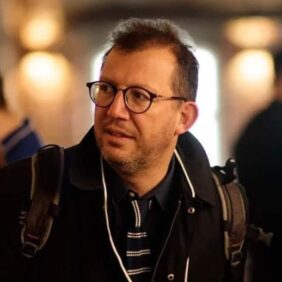 Dear friends and colleagues,
Dear friends and colleagues,
I have been a member of ISOCARP for 17 years now, I still remember vividly the strong emotions I experienced during my first congress in 2003 in Cairo. Some of the people I met on that occasion became first of all dear friends, but also important references for collaborations and international cooperation projects. I deeply love the internationalist spirit and the open-mindedness of those who built and perpetuate the history of our society.
Maintaining and innovating this enormous heritage of knowledge, relationships, ideas, projects, and last but not least, of conviviality and sharing between international experts is not an easy task, as I was able to experience directly as an ExCo member from 2013 to 2015. I remember how difficult has been to introduce social media into ISOCARP’s everyday life and improving our website, ultimately benefited our community, but it took a lot of time and energy.
So, I’m not a new face of ISOCARP, I know the workings of our society without aspiring to positions of power and status. Giving my time to ISOCARP means working for ideas that enthuse me. Above all, it means listening and searching to realise the requests, directions and objectives that we are able to generate as a community of planners.
At this difficult historical moment we are experiencing, organisations need to rethink and transform themselves in the hope to increase their resilience, but also to increase their degree of attractiveness and their capacity to help and influence the debates related to their fields of action. This same critical path should be undertaken as soon as possible by ISOCARP:
- We cannot continue to consider ourselves a global society if we do not also put into practice a federalist type of governance. It is not pertinent to continue to centralise the management of ISOCARP, an alternative model has to be conceived.
- Consequently, the internal management of our society needs to be rethought and reorganised. We need to move from management on a voluntary basis and without protocols that guarantee the effectiveness and transparency of executive and strategic choices to an innovative, professional and more receptive organisational model.
- The relationship between ISOCARP, as a professional society, and the ISOCARP INSTITUTE should be regularised. The INSTITUTE must become a centre of excellence for issues relating to urban policies and sustainable development of the territory and not narrow opportunities. Such excellence can be achieved through diversification, greater inclusion and structuring with clear benefits for the membership.
- Member services, indeed, still remain an Achilles heel of our society. What is the added value of ISOCARP membership? How can we become attractive again? The membership aspect is critical and is a priority to be addressed that has too many times been postponed or addressed with solutions that have not had visible positive effects.
- We need to increase the degree of intergenerational and intercultural dialogue in connection with our initiatives, be they congresses, projects, events, online contributions on our website, publications or other activities.
In conclusion, a few words about me. I manage a company that deals with applied research and strategic planning (URBASOFIA), I live in Bucharest in Romania. I have collaborated, and continue to do so, with several European cities, ministries, regions as an international expert. I cooperate with international institutions (European Commission: URBACT and UIA Secretariats, UN-Habitat, UNECE) in important planning and research tasks.
Choosing me as president means choosing a person who always seeks mediation, but who does not like compromises disguised as innovation to leave everything as it is.
Thank you for your time and attention,
My kindest regards,
Pietro Elisei
Velletri (Rome), 04/10/2020